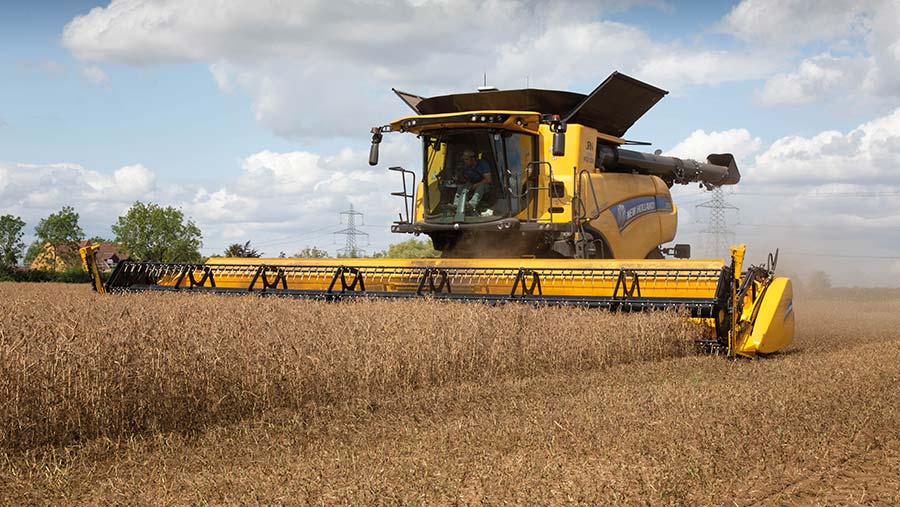Opinion: No UK strategy for growing market in protein crops
 © Tim Scrivener
© Tim Scrivener With the markets for plant-based food products estimated by Mintel to have grown 40% in 2019, we have a major market opportunity for UK growers.
Yet, despite these trends, the UK farming industry has no apparent strategy to exploit this opportunity and UK farmers seem set to miss out.
Buying trends are for healthy eating and sustainable production, and there is growing evidence that increasing the amount of plant-based content in our diets has significant benefits.
See also: How starter fertiliser lifts pulse yields by up to 1.13t/ha
About the author
 James Maguire
James Maguire
Presient, Pulses UK
James Maguire is president of Pulses UK and special crops sales manager for KWS UK, based in Hertfordshire. Here he sets out the case for giving pulses a greater push to make the most of a steadily growing human consumption market.
This is leading to an increase in both the consumption of plant-based proteins and their use as high-quality food ingredients.
The world market for plant-based proteins is currently estimated to be worth £6bn and is expected to increase at 3-5% a year over the next 10 years.
The main plant-based protein crops are the pulses – peas, beans, lentils and chickpeas – and countries such as Canada, Australia and France are all investing in their pulse industries to exploit the potential of this developing market.
In the UK we too have a food industry using more and more pulses, with Calbee on Deeside established in the pea snack market and Novo Farina in Norwich producing quality pea flour and food ingredients.
Warburtons is looking into the use of pea ingredients for its bakery business.
UK scientists have also identified a type of pea starch that can help reduce obesity and associated diseases such as diabetes.
And last year we had Xampla, a spin-off from Cambridge University, announce the invention of a range of plastic microcapsules and coatings to reduce the use of fossil fuel-based plastic.
The UK is well placed to grow pulses.
Protein peas and faba beans have been grown here for centuries and, as nitrogen-fixing legumes, they fit well with the government and farming industry’s objectives for sustainable production and net-zero emissions over the next decades.
But for farmers to grow more pulses they need to have the confidence of reliable returns. As with cereals, peas and beans grown for human consumption are premium priced.
Yields are not as consistent as for cereals and oilseeds, but results for the Yield Enhancement Network projects show targeted development work on farm could lead to both higher yields and greater consistency.
Unfortunately, pea and bean cropping is not large in area and they are often considered minor crops.
As such, the interest of scientists, public research funders and the agri-tech sector is minimal. Government support is needed to stimulate investment in pulses.
Like Canada and France, we need to develop a national plant-based protein strategy.
This must involve all stakeholders – growers, food processors, researchers, agronomists and the government – working together on developing a common strategy for UK plant-based proteins and pulses.
The food industry needs to buy in to the inclusion of pulse products as ingredients.
Research funders must support projects that help growers attain more consistent yields and improve their sustainability. Agri-tech and agronomy businesses need to be encouraged to invest in pulse-based agronomic packages.
This all requires government support to stimulate investment in pulses by incorporating them at the core of its post-Brexit agri-food strategy.
Critically, there is a major role for the NFU to actively promote a strategy for pulses. Sitting back now will only allow farmers in North America and France to take this market from us.
The food industry will certainly need more protein-rich pulse crops, but will they be produced by British growers?
